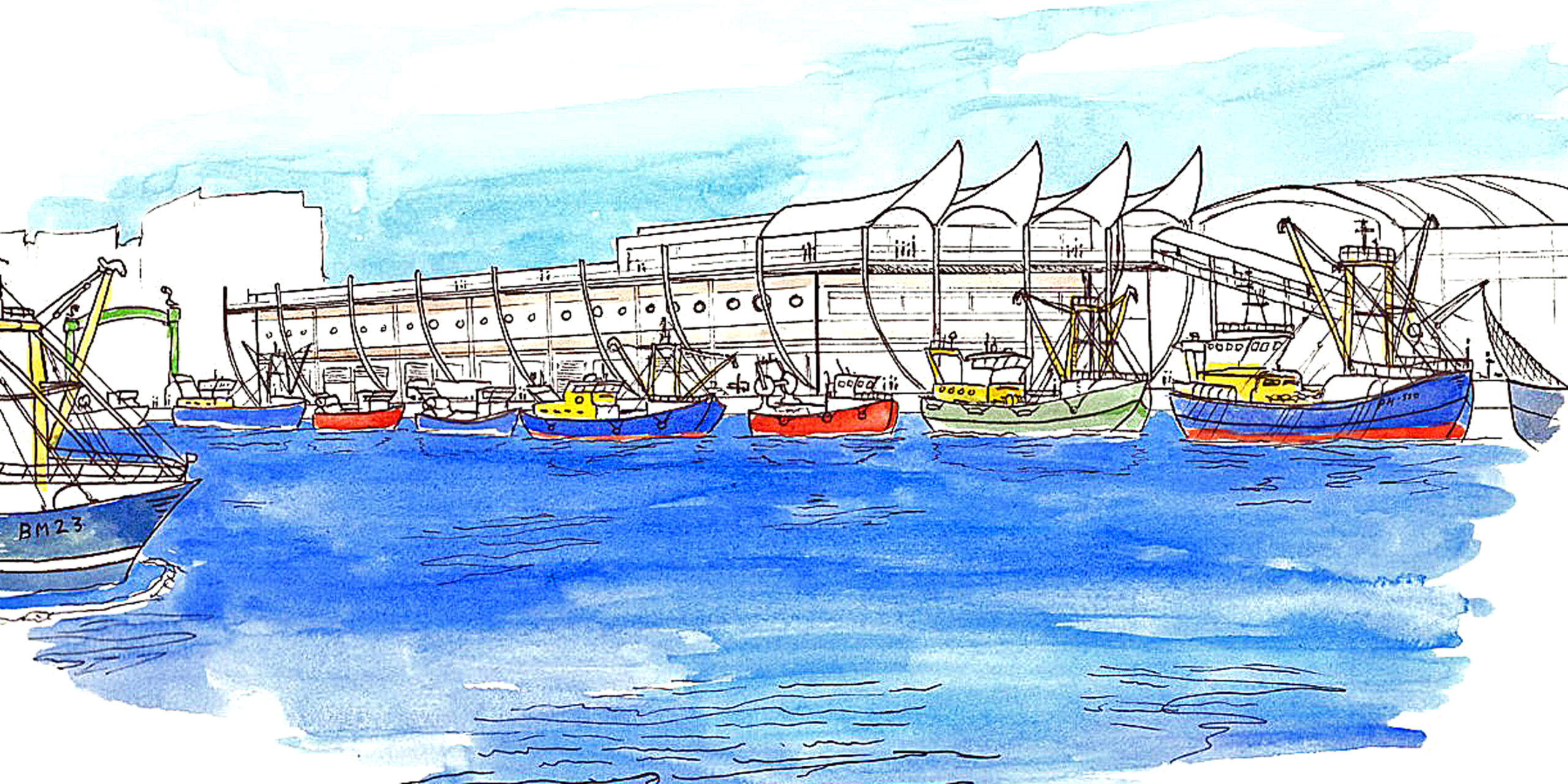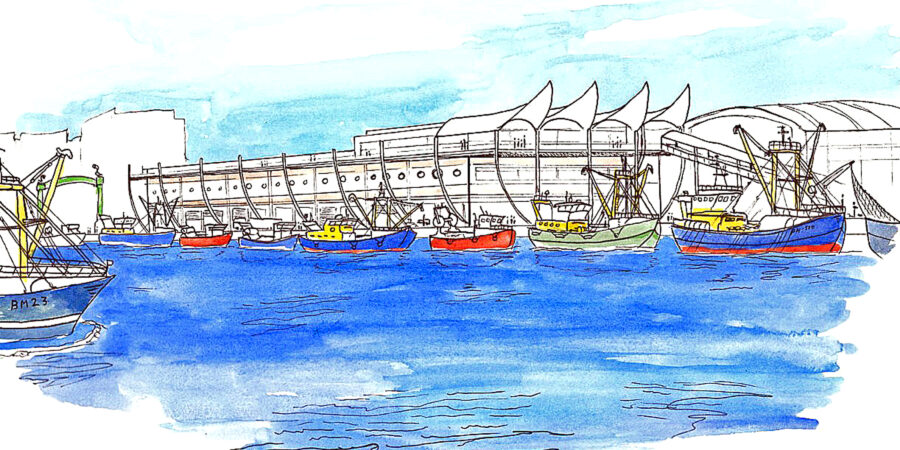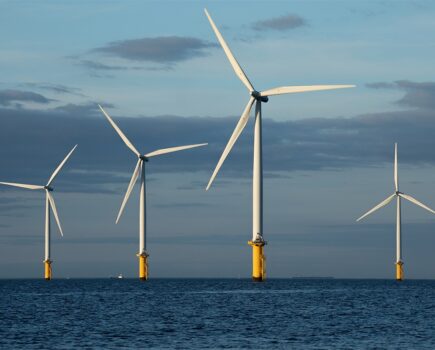In a meeting of the Plymouth City Council on 27 February, the first step was taken to protect the whole fisheries complex footprint to support the fishing industry and its future within Plymouth.
Speaking about the City Plan and the protection of the site for the fishing industry, local MP Oliver Colvile welcomed the move by the City Council and the confidence the plan could offer to the Plymouth fishing fleet about their future. He said: “The fishing fleet is an important part of our heritage here in Plymouth. Fisherman are optimistic about their futures post-Brexit, and we must do all we can to support this. The protection of the site for fishing and related industries is an important step towards getting Plymouth ready to grasp the opportunities the future may bring them and support the millions of pounds that are already being invested by local business for new builds and fleet expansions here in Plymouth. Plymouth has a global reputation for marine science engineering and research. The fishing industry is a key part of this and I want the government and the council to do everything to boost our fishing industry in Plymouth. This will help do just that.”
The landowner, Sutton Harbour Holdings, had presented the plan to the council consultation, with their vision for the site that included redeveloping some of the footprint for shops, restaurants and apartments along the fishing quays.
The fishing industry engaged through the consultation process too, expressing concern that any mixed development with loss of the current space would be the beginning of the end for the fleet in Plymouth. Fishermen offered an alternative vision for the redevelopment of the space, which offered fit-for-purpose market facilities and storage for catches, a maritime training academy, a fish skills school, fisherman’s lofts for storage and a mixture of starter units and larger units to accommodate and support those who work in related industries.
Local Labour group leader Tudor Evans referred to the protection of the fisheries complex as a crucial piece of national infrastructure.
“We need to protect and support our fishing industry, and that means protecting the port facilities they work from too. All too often around our coasts we have seen the fishing facilities squeezed or priced out, and soon thereafter the demise or relocation of fishing boats to more friendly ports. We will not sit by and let this happen in Plymouth.
“It’s not just about good moorings and safe manoeuvring space on water; it is also about the vital space on the quaysides. Fishermen need suitable large areas of quay to lay out gear and mend nets. They also need designated safe areas to drop derricks in order to carry out routine maintenance and conduct vital safety checks, the availability of good ice, electricity and water supplies, adequate fridge space for catches, freezers for bait and gear stores.
“So many jobs are created on land by fisherman at sea, and we need to make sure that those who service our fishing fleet on a 24/7 basis have the facilities they need to get boats back to sea. Companies including netmakers, marine electrics/electronics, and hydraulic engineers require affordable units to encourage them to stay quay-side and offer the best service they can.
“Plymouth has the opportunity to be not just the number one port in tonnage for fish and shellfish landings in England, but also the top port for services and facilities offered to the fishing industry, and that should be our goal. Fishing boats are big investments, often backed by fishermen’s homes, and we need toF facilities we can, to help their businesses flourish and grow.”

An artist’s impression of how Plymouth harbour could look following redevelopment in line with the requirements of the fishing industry.
Cllr Patrick Nicholson, portfolio holder for planning in the city was pleased to present the Plymouth Plan and the work the team had done to protect the fisherman’s future in the city.
“This is a forward-looking plan for the city as a whole, providing the blueprint for housing, leisure, green spaces and industry in the coming years. We considered it essential that the fishing industry continue to play its role in the heart of the city and the waterfront area, and that we protect that.
“Engaging with fisherman is not always easy; when we are at work, they are usually at sea. Council officers and fisherman have worked hard to understand what is needed and to forge a working relationship to better understand the important role that fishing has to play in our local economy and the opportunities it provides for the city and beyond. The plan will now go to final consultation and the planning inquiry for final approval, and we are confident that at the end of the process this site will be protected until 2034. We will put the full weight of the council behind this plan and resist anything that looks to jeopardise the future of this iconic industry within the city.”
Local ward councillor for the area, Cllr Mary Aspinall, spoke at the meeting to support the plan. “Fishermen are brave, and it is right that we, too, are brave in our plans to protect their future. Already much of the facilities around the harbour, earmarked years ago for ship repair and other services, have Challengerbeen lost to mixed development, and we must ensure that no more is lost to apartments, shops and business not related to fishing.
“The fleet may be smaller now, but there is big investment being made by owners with new vessels, so we must make sure that there is space for them to moor in the harbour alongside the facilities they need. There are many spaces across the city for leisure moorings, yachts, etc and I wonder what more can be done in the plan to ensure that this vital mooring space is made available for fishing boats.”
Plymouth Trawler Agents (PTA) sells catches landed by boats in Plymouth as well as collecting or arranging transport from a large number of ports that have limited fish-selling facilities of their own. The long list of such ports includes Appledore, Axmouth, Beer, Bideford, Boscastle, Bude, Christchurch, Clovelly, Cowes, Dartmouth, Eastbourne, Exmouth, Flushing, Fowey, Holyhead, Ilfracombe, Lowestoft, Lyme Regis, Lymington, Mevagissey, Milford Haven, Newquay, Padstow, Polperro, Poole, Port Isaac, Porthcawl, Portland, Portsmouth, Salcombe, Shoreham, Sidmouth, Southampton, St Ives, St Mawes, Swansea, Teignmouth, Tenby, Torquay, West Bay, Weymouth and Whitehaven.
In an average year, PTA deal with some 350 vessels, of which over 80% are under-10m boats.
Gross fish sales through the PTA electronic auction in 2016 were £17.2m.
Read more from Fishing News here.








